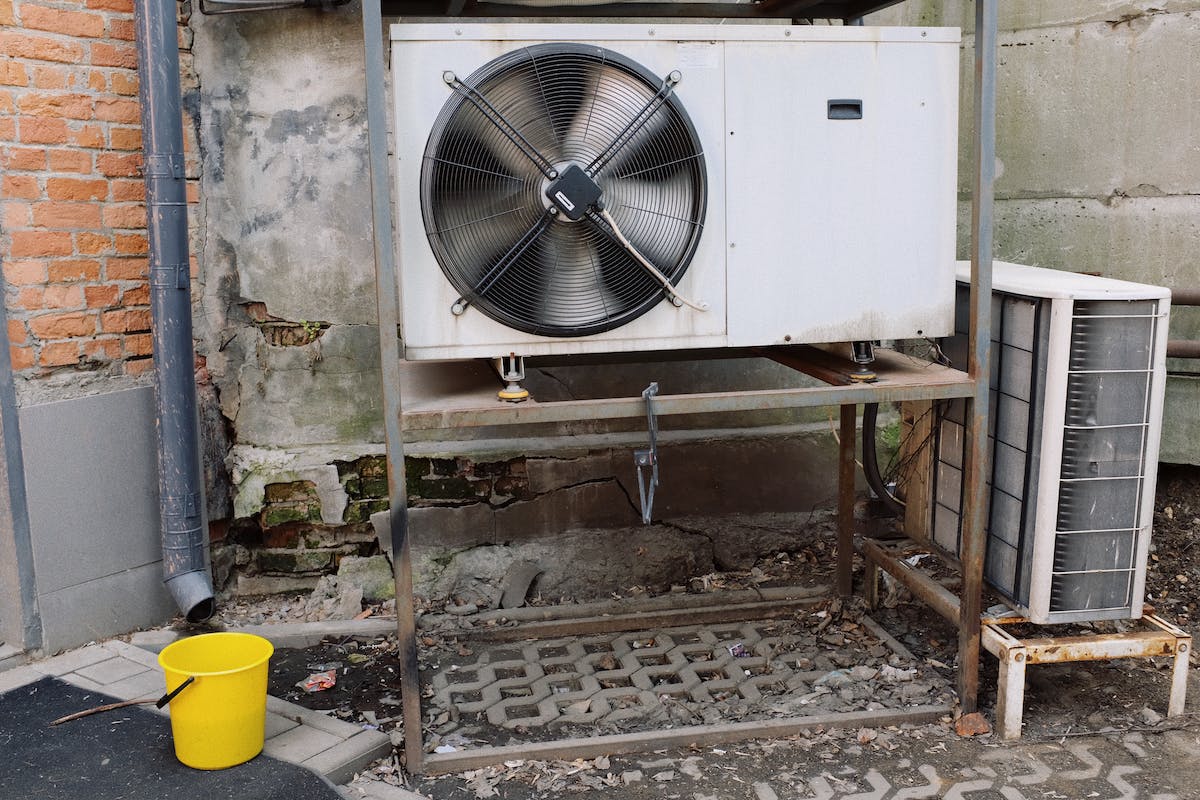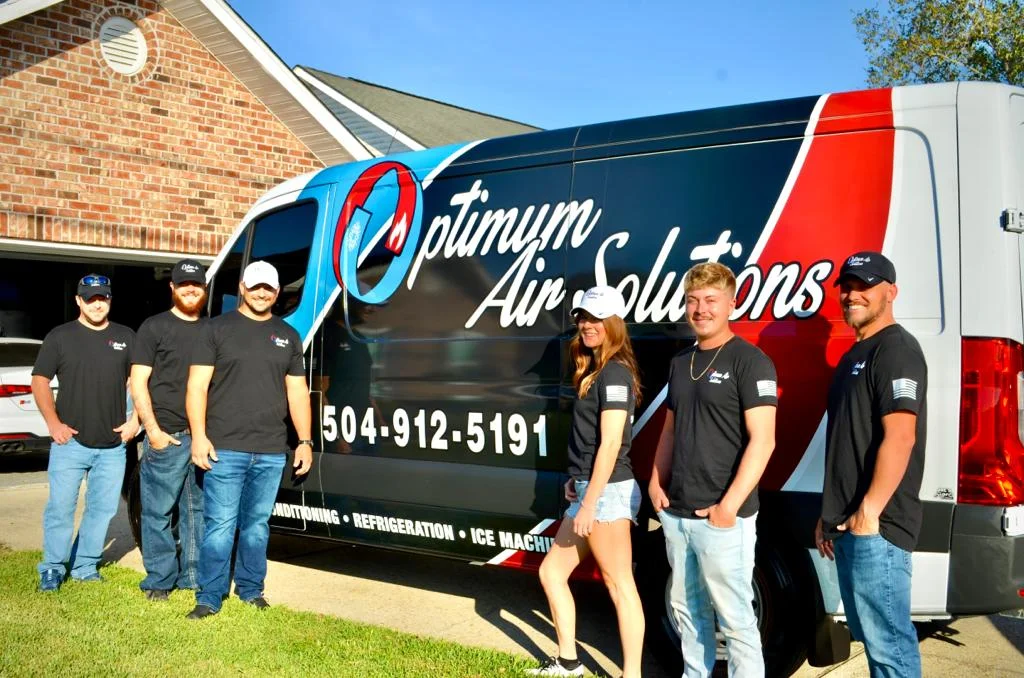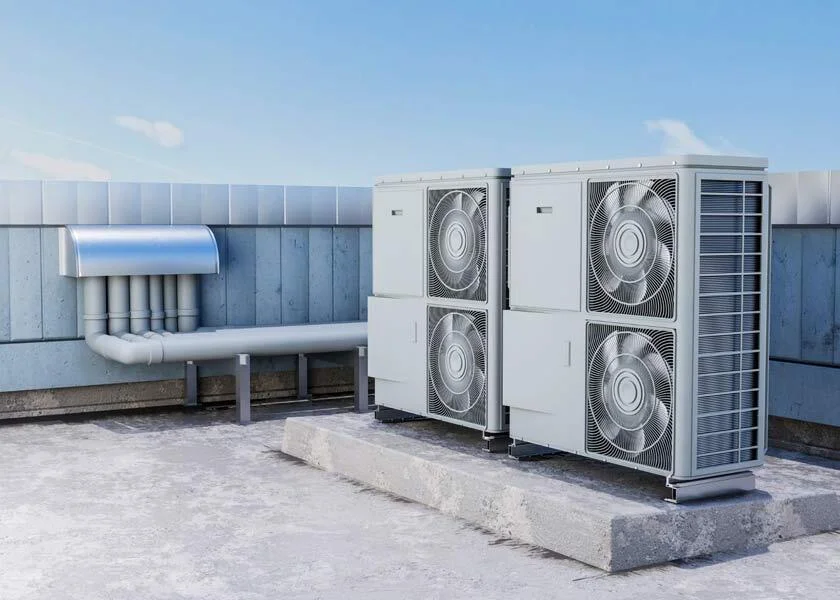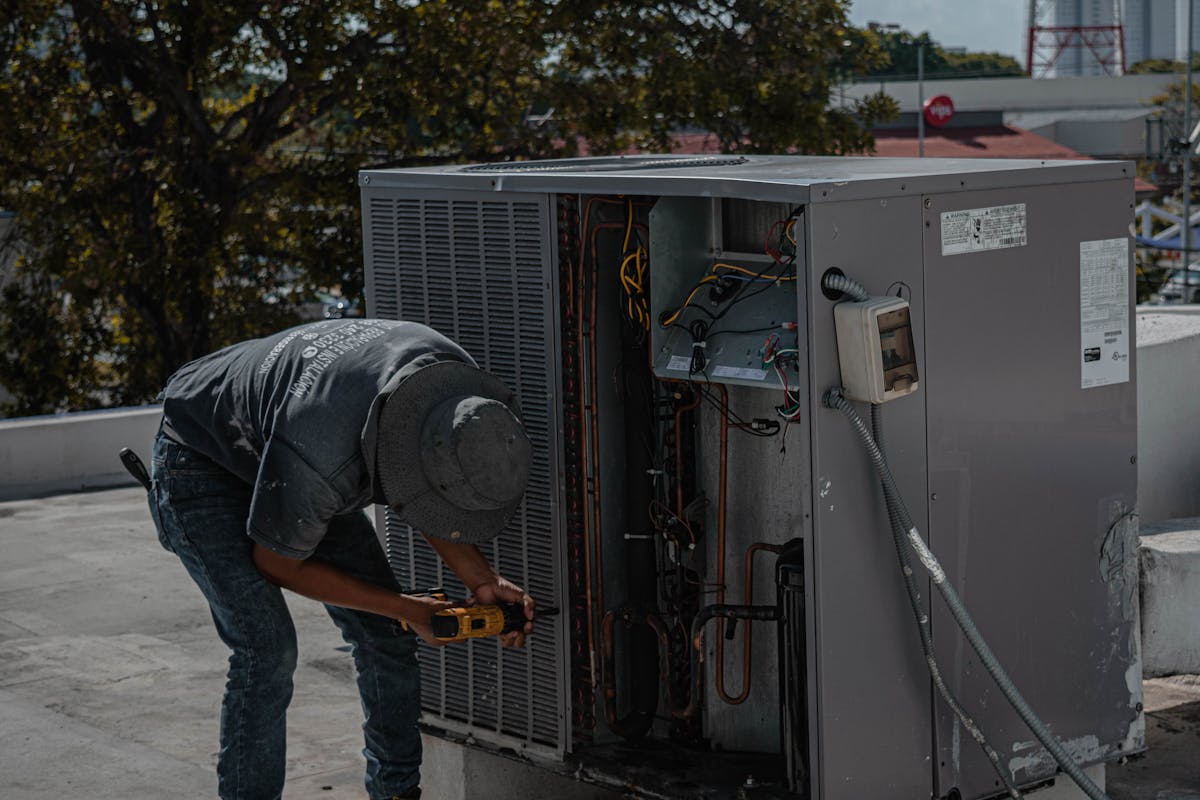
We live in a city where air conditioning may be considered a luxury to some, but in New Orleans is an absolute necessity. With the harsh climate and unpredictable weather, paired with the sweltering summers, air conditioning units play a huge role in maintaining our comfort. We’ve noticed that homeowners have an increasing curiosity about the safety and efficiency of their air conditioning units during inclement weather.
You can always count on the Optimum Air Solutions team to answer any questions or concerns regarding their units. We’re your trusted HVAC partners serving the New Orleans, Belle Chasse, and surrounding areas. With expertise in anything from installation, troubleshooting, replacement, and maintenance, our team is well-versed in the heating and cooling industry.
So, today, we’re answering the question “Can you run an AC unit in the rain?” Let’s find out!
Understanding AC Units and Weather Conditions
Before we dive deep into the specifics of operating an air conditioning unit in the rain, we first want you to understand how the system functions. Your air conditioning unit is made up of two main components: your indoor unit that cools the air and the outdoor unit that expels the heat. This particular configuration requires a connection between the two to operate efficiently.
Now, there are quite a few ways that rain can impact your AC unit’s operation. Your outdoor unit is specifically designed to withstand a multitude of weather conditions, including something that occurs as frequently as rain. That said, its effectiveness can be compromised if water enters the unit’s electrical components. When you are able to understand these factors, you’ll be able to answer “Can you run an AC unit in the rain?”.
Can You Run an AC in the Rain?
So, our pressing question still remains: “Can you run an AC in the rain?” Well, the short answer? Yes! It is generally safe to run your air conditioning unit when it’s raining. After all, New Orleans has a tendency to be hot and rainy, so what good would it do us if we couldn’t?
Our air conditioning systems were designed with handling moisture in mind, however, it’s important to be mindful of several factors. First, if you’re concerned about the severity of the weather, check in with the manufacturer’s manual. Following their recommendations could help you avoid any potential problems with your unit.
Specific Scenarios
When you’re evaluating whether or not you can your AC unit during the rain, you should look at a few different types of systems.
Central AC Systems
When it comes to central AC systems, their design allows for continuous operation, even when it’s raining out. Usually, these types of AC units are elevated to avoid flooding, and their outdoor counterparts are designed to handle moisture. That said, if you notice heavy rain paired with strong winds, it might be wise to turn your air conditioning unit off to avoid any water damage or debris clogged in your system.
Window AC Units
If you own a window AC unit, your situation may be a little different. That isn’t to say that running a window AC unit in the rain is prohibited, but they are more susceptible to water damage. If rainwater enters your unit, it can lead to electrical issues and even mold growth. If you notice that heavy rain is coming, it might be wise to turn your window air conditioning unit off and verify that it is properly sealed to prevent any of the rain from betting inside of the system.
Ductless Mini-Split Sytems
Ductless mini-split systems are another type of cooling solution we have found amongst our homeowning clients. These types of systems usually have a higher tolerance for moisture due to their split design. Again, it should be noted that, as with any unit, it’s super important to monitor your local weather conditions. Running ductless mini-split systems are safe to run in the rain, but protecting your outdoor unit from the excessive moisture is advisable.
Potential Risks and Precautions
It’s generally safe to run your ACV during rain, but there are still a few risks to consider. Electrical safety terms can never be overstated. They’re paramount! Moisture has the capacity to affect your unit’s electrical components. This excess in moisture can lead to malfunctions and short circuits. That said, if you notice weird noises or behaviors coming from your AC unit during rainy weather, it’s definitely best to turn it off and call an expert professional for help.
Another thing to look out for is water damage, especially when it comes to window units. Rain has the potential to lead to some serious problem if water happens to seep into your unit. If you have one of these units installed, you should regularly check your window AC for any signs of wear and tear, particularly around the seals and mounting areas. Making sure that all of these areas are well-maintained, will help mitigate the risks associated with running your AC in the rain.
If you want to protect your air conditioning system during rainy weather, there are a few precautions you can take. Start with verifying that your units are installed properly and elevated to avoid the occurrence of flooding. When you’re expecting a heavy rainstorm, powering off your system may be your safest option.
Having regular AC Maintenance in New Orleans checks conducted by trusted experts like the Optimum Air Solutions team will also help you to identify any potential vulnerabilities when it comes to your air conditioning system’s operation in the rain and any other inclement weather conditions.
Now that you understand the answer to the question “Can you run an AC in the rain?”, you understand how to safely operate your systems and stay comfortable in inclement weather. Being proactive in your approach as a homeowner is essential when it comes to the life span of your system.
Do you have any further questions about your air conditioning unit? The Optimum Air Solutions team is here to help! Click here to get in contact with one of our specialists will help you with any questions or concerns. We’ll have you breathing easy in the Big Easy in no time.
continue reading
Related Posts
There’s a simple truth when it comes to your HVAC
“Efficiency isn’t just about comfort. It’s about cost and resale.”
“An ounce of prevention is worth a pound of cure.”






